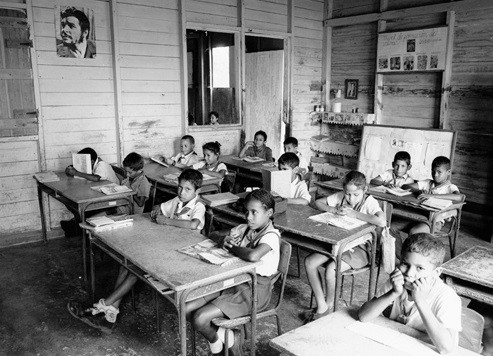Fidel Castro, Longtime Dictator of Cuba, Dies

 The longtime dictator of Cuba, Fidel Castro, died Friday at the age of 90. Earlier, I debunked pro-Castro myths that some left-leaning politicians have peddled about Castro — including President Obama. Some of Castro’s killings and acts of oppression are described at this link.
The longtime dictator of Cuba, Fidel Castro, died Friday at the age of 90. Earlier, I debunked pro-Castro myths that some left-leaning politicians have peddled about Castro — including President Obama. Some of Castro’s killings and acts of oppression are described at this link.
Castro made life much more primitive for the average Cuban. He took a country that was once a beacon of hope and prosperity in Latin America and impoverished it. People who claim Cuba was backward by international standards when Castro seized power in 1959 are either ignorant of history or trying to excuse Castro’s role in making it as backward as it is today.
Today, Cuba lags other Latin American countries that were once poorer than it – such as Mexico, Brazil, and Colombia – in per capita income and mobility, according to both the World Almanac and the CIA World Factbook.
As the progressive economist Brad DeLong notes, unlike the backward, underdeveloped nation of today, Cuba in 1957 was a developed country:
Cuba in 1957 had lower infant mortality than France, Belgium, West Germany, Israel, Japan, Austria, Italy, Spain, and Portugal. Cuba in 1957 had doctors and nurses: as many doctors and nurses per capita as the Netherlands, and more than Britain or Finland. Cuba in 1957 had as many vehicles per capita as Uruguay, Italy, or Portugal. Cuba in 1957 had 45 TVs per 1000 people–fifth highest in the world…
Today the UN puts Cuba’s HDI [Human Development Indicator] in the range of…Mexico. […]
Thus I don’t understand lefties who talk about the achievements of the Cuban Revolution [as having provided] “…better health care, housing,
education.”
As Reason Magazine observes, Cuba in the late 1950s was quite advanced by world standards:
In 1959 Cuba had 128.6 doctors and dentists per 100,000 inhabitants, placing it 22nd globally—that is, ahead of France, the United Kingdom, the Netherlands, and Finland. In infant mortality tables, Cuba ranked one of the best in the world, with 5.8 deaths per 100,000 babies, compared to 9.5 per 100,000 in the United States. In 1958 Cuba’s adult literacy rate was 80 percent, higher than that of its colonial grandfather in Spain, and the country possessed one of the most highly-regarded university systems in the Western hemisphere.
Washington Post editorial board member Charles Lane debunks some pro-Castro claims by his fellow journalists, noting that Cuba is more economically and socially backward than they realize (a backwardness confirmed by World Bank and UNESCO statistics).